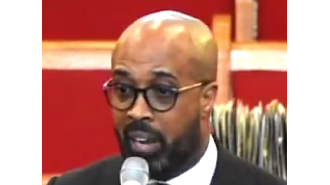Chocolate costs going up may divide those who are like Charlie Bucket from those who are like Veruca Salt.
Things are not looking up.

The situation regarding chocolate prices is not looking good at all. Some people are even saying that the treats aisle is now only for the wealthy. This is just one reaction to a viral Instagram Story about the cost of chocolate in British and Irish supermarkets.
Other readers expressed similar outrage at the skyrocketing prices, with one person even calling for a nationwide campaign to fight against it. It's clear that people are angry about this issue, and it's been building up for a while now. One TikToker, @1megzyy, posted a video showing that Cadbury Oreo bars had gone up by 50p at their local shop.
They couldn't believe it and asked, "Are you taking the p***?" Others have also shared their frustration on social media, with users like @oli_little_juju commenting that buying chocolate now requires a mortgage, and even Chicken Shop Date host Amelia Dimoldenberg referencing the growing cost of chocolate in a recent episode. The price of chocolate has always been seen as recession-proof. During tough times, people turn to small pleasures like chocolate for some relief.
However, it seems like these simple joys may no longer be accessible for many, as the cost of chocolate continues to rise to unprecedented levels. This is due to a combination of factors, with the wholesale price of cocoa increasing four-fold in the past year. Climate change is being blamed for poor harvests in West Africa, where the majority of global cocoa producers are based.
Despite the reduced supply, the demand for chocolate is still growing, resulting in prices peaking at an all-time high on the London Cocoa Futures market. This spike in cocoa prices has been passed on to consumers, with Which? reporting that chocolate prices are rising faster than any other food category they research, labelling it as "chocflation." Looking at some of the most beloved chocolate brands, the numbers are shocking.
A standard size bar of Cadbury Dairy Milk cost 45p in the 90s, but now it can cost upwards of £1.85. Snickers and Mars bars were 25p before the millennium, and now they can be anywhere from 85p to £1. And who can forget the beloved Freddo, which has become a symbol of inflation.
The 18g chocolate frog used to cost only 10p, but now it averages at 30p, a 200% increase since the 90s. Many people on social media, like @justaindiangirl, have expressed their disbelief and frustration at the rising cost of Freddos. While it's not surprising that things become more expensive over time, the current situation is different.
It's happening at a time when wages have been stagnant for decades, and people have less disposable income. And even though we still love our chocolate, it now takes up a larger portion of our budget than before. This is due to the "treat economy," also known as the "lipstick effect." The idea is that during tough economic times, people still tend to buy small luxuries to help forget their financial problems.
This has been seen in the recent trend on TikTok, where creators claim that they deserve a "little treat." Additionally, a survey by Barclaycard found that almost half of people continued to indulge in minor luxuries, even while cutting back on other expenses. But what happens when these small luxuries become unaffordable for some? Does this mean that only the wealthy will be able to enjoy chocolate, while the rest of society misses out?
These are important questions to consider, as the rising cost of chocolate may be a sign of wider cultural issues. After all, even though chocolate may not be essential, it's often the little things that can reveal bigger problems. The cost of chocolate these days is far from sweet.
As a matter of fact, some people are calling it "robbery" and "outrageous". One Metro reader even suggested that the publication should start a nationwide campaign to fight against it. This issue has caused widespread anger and frustration, with many noticing a significant increase in prices over the past few years.
Social media has been abuzz with people sharing their experiences and reactions to the soaring prices of chocolate. One TikToker, @1megzyy, was shocked to see a 50p increase in the price of Cadbury Oreo bars at his local shop. He even joked that they must think he's "middle class" now.
Others have also taken to Twitter to express their frustration, with one user, @speirin, calling it a "cost of living crisis" and another, @kaikell, questioning how a 90g chocolate bar can go from £1 to £1.50. It's not just regular chocolate bars that have seen a spike in prices. Even the beloved Freddo has gone up in price, with many joking that it now comes with a mortgage.
This phenomenon has been dubbed "chocflation" by Which?, who have found that chocolate prices have risen faster than any other food category they research. But why is chocolate suddenly so expensive? The answer lies in a combination of factors.
Firstly, the wholesale price of cocoa has increased four-fold over the past year due to poor harvests in West Africa, where the majority of global cocoa producers are based. This, coupled with the growing demand for chocolate, has led to prices peaking on the London Cocoa Futures market. This spike in prices has been passed onto consumers, with brands like Cadbury Dairy Milk and Mars seeing significant increases in their prices over the years.
And while a 20p increase may not seem like a lot, it becomes more significant when you consider the decades-long wage stagnation and the fact that people are spending a higher percentage of their income on chocolate now than they did in the past. But why do people still buy chocolate despite the rising prices? This is where the concept of the "treat economy" comes in.
Just like the "lipstick effect" after the 9/11 attacks, people tend to still indulge in small luxuries even during tough economic times. This trend has been evident on social media, with the #LittleTreat and #LittleTreatCulture hashtags gaining popularity. But as the price of chocolate continues to soar, there is a concern that it may become unattainable for some people.
Will we end up in a world where only the wealthy can afford to indulge in sweets? It's a thought that has crossed the minds of many, as the cost of raw materials, manufacturing overheads, and global events all contribute to the rising prices of chocolate. While chocolate may not be an essential item, it is often seen as a small pleasure that can provide some relief during tough times.
But as prices continue to increase, it begs the question - what does it say about our society when even the simplest of pleasures become unattainable for some?










